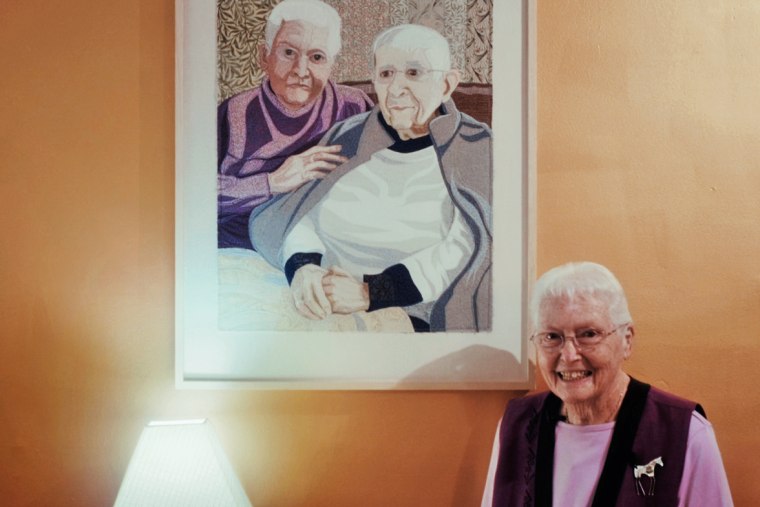“Two, four, six, eight! How do you know your grandma’s straight?” These words rang through our nation’s capital on April 25, 1993, during the March on Washington for Lesbian, Gay and Bi-Equal Rights and Liberation. Now, three decades later, if you pose this question to filmmaker Meghan McDonough, she’ll say, “You don’t necessarily!”
McDonough, 30, has spent the last year working on her documentary short “Old Lesbians,” which delves into the archives of the Old Lesbian Oral Herstory Project (OLOHP) and honors the project’s late founder, Arden Eversmeyer, who died last November at 91.
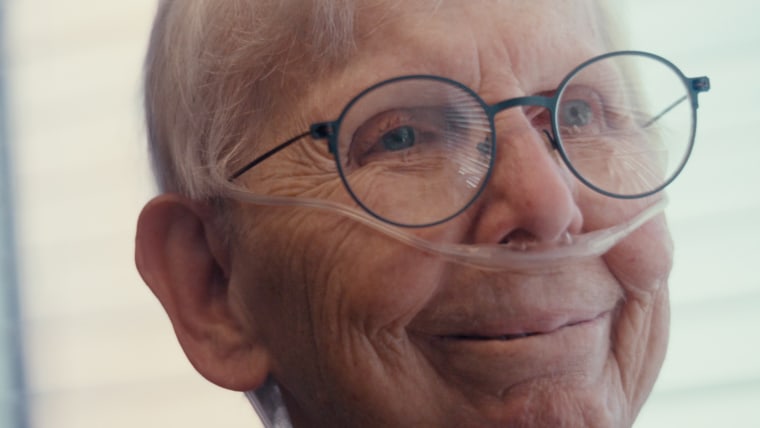
After losing her partner of 33 years in 1985, Eversmeyer, a self-proclaimed “old lesbian,” looked for support groups for lesbians her age but found none. Two years later, the Houston native, then 54, decided to fill the gap herself and created a community called Lesbians Over Age Fifty (LOAF).
LOAF’s mission statement described it as a “social networking and support group for women 50 years of age and older, and their partners, whatever their age.” About a decade after the group’s founding, when some members’ health began declining, Eversmeyer was compelled to preserve her friends’ life stories before they were lost forever.
When Eversmeyer recorded her first interview in 1998, the Old Lesbian Oral Herstory Project began in earnest. The group’s goal was simple: preserve the stories of lesbians over 70 in their own words. She didn’t realize interviewing a few of her close friends would lead to a decadeslong journey of traveling the country, training fellow interviewers (who also typically had to be 70 or older), and recording hundreds of women’s life stories.
The archive now includes more than 800 recorded interviews and is being preserved in the Sophia Smith Collection at Smith College, an all-women’s college in Massachusetts. The interviews were recorded on audio tapes and were then transcribed and put together with photos and other supporting documents.
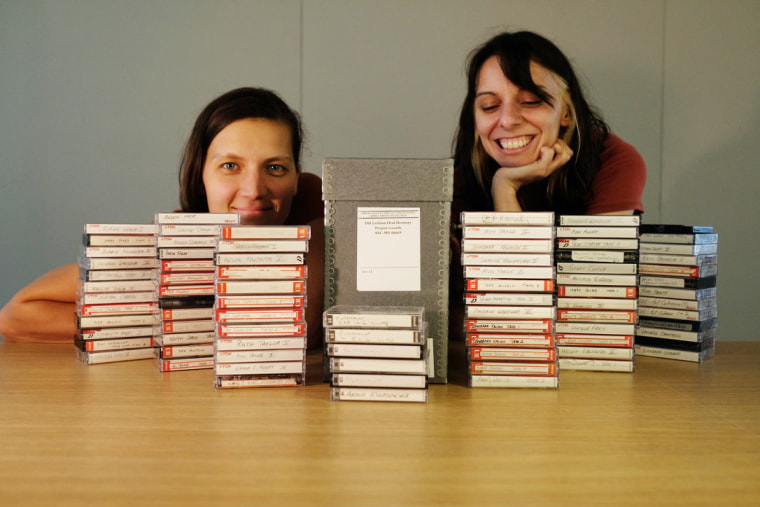
McDonough first stumbled upon the project in early 2022 while searching for lesbian history archives online. In 2020, she visited the Lesbian Herstory Archives in Brooklyn, New York, and wanted to see if any other institutions or projects like it existed. Two years later, when McDonough was perusing the OLOHP website, she decided to schedule a Zoom call with Eversmeyer. The two then arranged for McDonough to interview the project’s founder in person a few months later at the Queer History South conference in Dallas.
OLOHP’s mission and Eversmeyer’s story inspired the filmmaker to make a documentary short. McDonough, a Brooklyn resident who has been out for about 10 years, said she has long felt that representation for queer people was lacking. As a young member of the LGBTQ community, she said she wanted her generation to know more about their predecessors — the good, the bad, and the flat-out tragic.
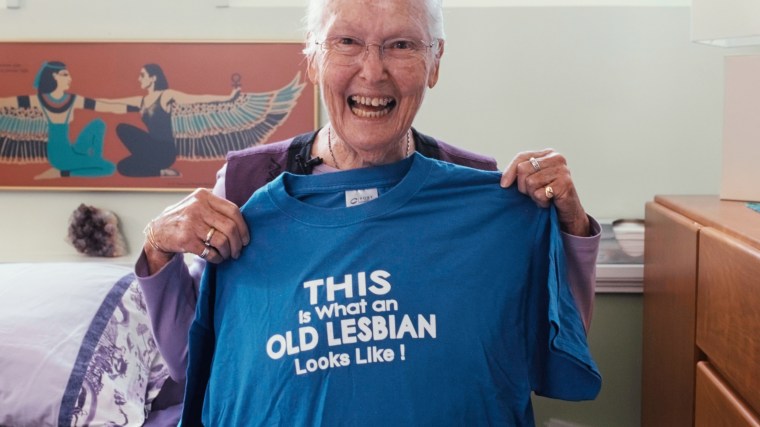
McDonough has directed documentary shorts about topics ranging from climate change to mental health, and her work has been featured by outlets including NBC News, The New Yorker and The Washington Post. But “Old Lesbians,” she said, hits especially close to home.
“I hope that young people, people of my generation, watch the film and realize that we can’t take our rights for granted,” McDonough said. “They didn’t just magically appear. There are generations before us who fought really hard to get them.”
The LGBTQ history buff said she learned a lot through her conversations with Eversmeyer, including stories about purges of queer women on college campuses in the 1940s and ‘50s.
“Women who were in a relationship with another woman were just sent off campus with no further discussion and expelled, and that kind of thing can really derail someone’s life,” she said.
Barbara Kucharczyk, a trained interviewer for the OLOHP, first met Eversmeyer in 1987 while dating Eversmeyer’s niece. Even after the couple broke up, Kucharczyk said, she and Eversmeyer remained close, with the older woman being “like a second mother” to Kucharczyk, who was in her 30s when they met.
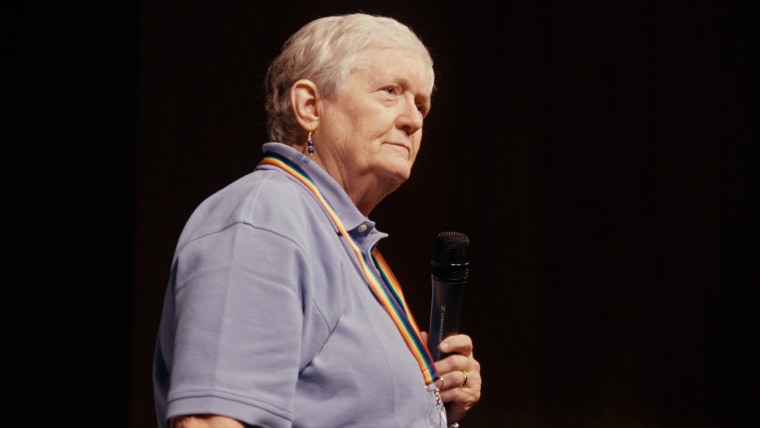
Kucharczyk, 75, said she appreciated that the goal of the OLOHP was not to sensationalize the women’s stories but to simply preserve them. When she was 68, Eversmeyer interviewed her for the project and began training her as an interviewer. Like McDonough, Kucharczyk said she believes LGBTQ young people must learn about the history of their elders, especially in today’s political climate.
“It’s such a cliché to say that if you don’t study history, then you end up repeating it. Well, the bad news about that, in terms of the LGBTQ+ community, is it’s already happening,” Kucharczyk said. “History is coming around again. All the gains that were made are being trampled.”
Republican lawmakers across the U.S. have proposed a record number of anti-LGBTQ state bills: more than 500 so far this year, with 84 of them becoming law, according to a tally by the American Civil Liberties Union. And as NBC News previously reported, harmful old tropes about the queer community have been given new life in the current anti-LGBTQ movement.
Related stories
Historian Lillian Faderman, author of “The Gay Revolution” and several other books on LGBTQ history, was among the women featured in McDonough’s film and her “herstory” is part of the OLOHP.
“I think they have to keep themselves informed,” Faderman said of today’s LGBTQ youths. “They have to learn the history. They have to know that if they’re persecuted now, it’s not a disaster because we’ve been persecuted before, and we figured out how to fight back and make things better. We just have to stick together and fight.”
Faderman came out while living in Los Angeles in the mid-1950s, after she attended the University of California, Berkeley, for her undergraduate degree.
“I came out in 1956 in the lesbian bar culture. I was a teenager with a phony ID, and it was really like we had invented this, and all I knew [was] that we were outlaws,” Faderman recalled. “I had no idea of our long history or the complexity of women’s lives, and it was sort of lonely to think that we invented this and society was against us.”
She eventually went on to get her doctorate in English at UCLA and co-founded the Gender Studies Department at Fresno State University. One of her queer history books, “Odd Girls and Twilight Lovers,” is one of the most comprehensive — if not the most comprehensive — history books about lesbian life in the U.S.
Faderman noted that when she came out, during the McCarthyism of the 1950s, “things were absolutely awful” for gays and lesbians.
“People were fired from their jobs for being gay. In every single church, we were sinners without exception,” she said. “The American Psychiatric Association classified us as mentally disordered.”
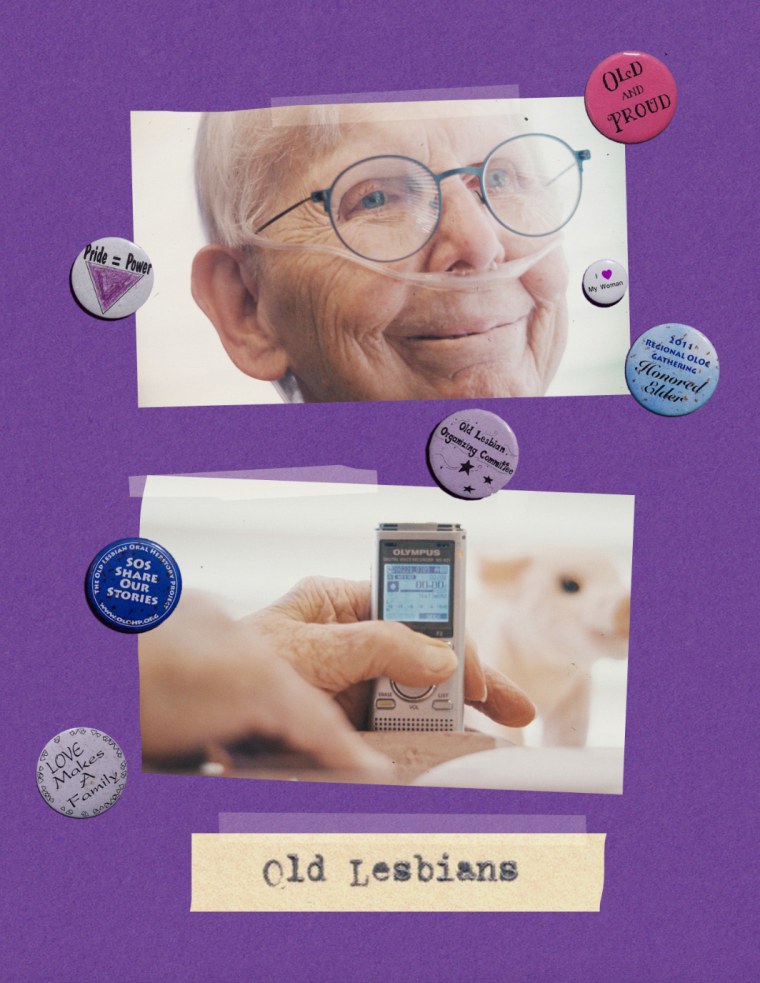
During the mid-century’s so-called Lavender Scare, when the federal government sought to investigate and purge gay employees, thousands of federal employees were fired or forced to resign. And it wasn’t until 1973 that the American Psychiatric Association decided to remove homosexuality from its list of mental illnesses.
Faderman said she hopes that by seeing older lesbians not only survive but thrive, young queer women can remain positive about their future. If her queer community overcame hard times, she said, so can today’s youth.
“We fought the good fight, and we insisted on being who we were, and I think it should serve as an inspiration to young people to know that we can hang on and things do get better.”
McDonough’s latest film, “Old Lesbians,” will premiere on Nov. 11 at the Aesthetica Film Festival in York, England, and virtually.
